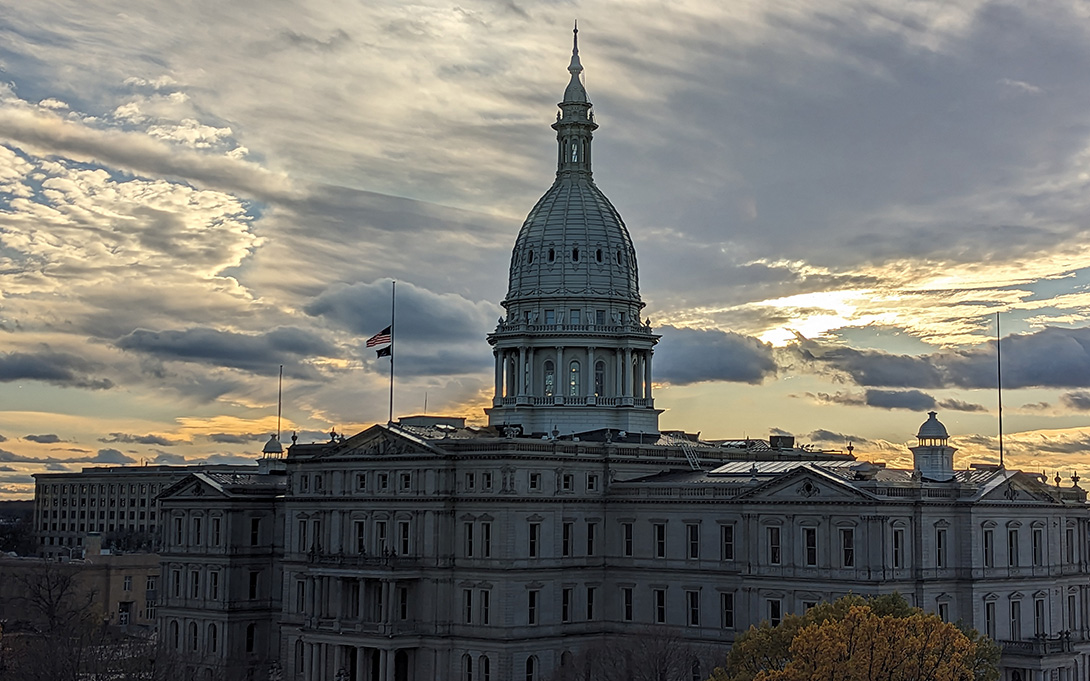
Michigan local leaders’ assessments of democracy at the national level have improved marginally for two years in a row after a sharp decline in 2021, largely due to fewer local officials rating American democracy as poorly functioning. Similarly, there have been marginal improvements in assessments of how democracy is functioning in the state of Michigan overall.
However, a different pattern emerges in assessments of the functioning of democracy in local government officials’ own communities, which declined marginally this year. From 2020 to 2022, 84% of local Michigan leaders gave high ratings to the functioning of democracy in their communities, while in 2023 this has dropped to 79%.
“Although this is a relatively small change, it does stand out somewhat in the MPPS time-series of surveys, which typically find local officials giving very high marks to a wide variety of elements of governance in their own communities,” according to Debra Horner, senior program manager for the Michigan Public Policy Survey (MPPS).
These assessments are revealed in the latest policy brief from the Center for Local, State, and Urban Policy (CLOSUP) at the University of Michigan’s Gerald R. Ford School of Public Policy. Since 2020, the MPPS has asked local government leaders across the state for their assessments of American democracy as a system of government, based on factors like free and fair elections, rule of law, an unbiased free press, ethical and transparent governance, an informed and engaged electorate, and more.
The MPPS showed significant deterioration in attitudes about the health of national and state democracy between 2020 and 2021, with a sharp increase in “poor” assessments, and a corresponding sharp decline in “high functioning” assessments, which may be linked to the COVID 19 pandemic which began in spring 2020, as well as the actively disputed 2020 elections, and the January 6th attack on the U.S. Capitol.
“Some of our previous surveys have found cause for concern at the local level, particularly regarding widespread reports of public abuse heaped on local government workers. But this is the first time our local leaders have said democracy may be declining in their communities, and this should not be ignored. We need to redouble efforts to strengthen democracy in the U.S.,” said Tom Ivacko, executive director of CLOSUP.
The decline in “high functioning” evaluations for local democracy is particularly concentrated among a few sub-groups of respondents. Looking at differences by self-identified political partisanship, Democratic local officials’ assessments of the functioning of democracy remain unchanged. Meanwhile, the largest drop in assessments is among those who declined to provide their partisan identification (or don’t have one). Among this group, just 71% rate democracy in their communities highly in 2023, down from 81% a year earlier, and significantly lower today than their peers who identify as Independents (77%), Republicans (82%), and Democrats (84%).
The data presented in this policy brief come from the Spring 2023 MPPS, conducted February 6 – April 17, 2023. The MPPS is an ongoing census survey of all 1,856 general purpose local governments in Michigan conducted since 2009. Respondents include county administrators, board chairs, and clerks; city mayors, managers, and clerks; village presidents, managers, and clerks; and township supervisors, managers, and clerks from 1,307 jurisdictions across the state, resulting in a 70% response rate by unit.
